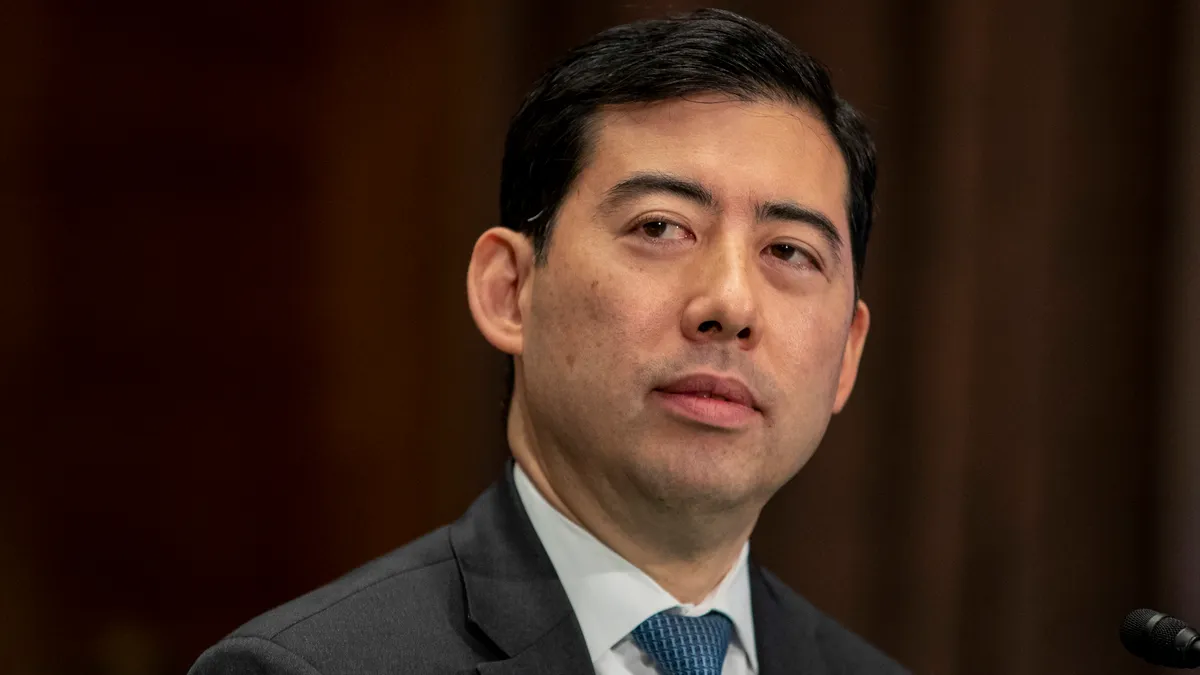When Judge Reed O’Connor of federal district court in Texas rejected a plea deal December 5 between Boeing and the Department of Justice, much of the media coverage was on the judge’s concern over how the deal’s independent monitor would be selected.
The deal was intended to resolve the company’s violation of an earlier agreement, related to the 2018 and 2019 crashes of two of its 737 Max 8 jets that left hundreds of people dead, and the judge focused much of his criticism on the agreement’s use of DEI language. It called for DOJ to factor in diversity, equity and inclusion principles when it chooses who will oversee Boeing during a three-year probationary period as it improves the safety of its planes and develops processes to prevent problems from getting swept under the rug.
“In a case of this magnitude, it is in the utmost interest of justice that the public is confident this monitor selection is done based solely on competency,” O’Connor said in his decision. “The parties’ DEI efforts only serve to undermine this confidence in the Government and Boeing’s ethics and anti-fraud efforts. Accordingly, the diversity-and-inclusion provision renders the plea agreement against the public interest.”
Stacy Hawkins, a law professor at Rutgers University, told The Wall Street Journal the ruling seemed to show a willful ignorance on the judge’s part. O’Connor, she said, appeared determined to believe “that valuing diversity must mean considering race and gender in making selections.”
Joe Patrice, an attorney who edits the Above the Law blog, took a similar position, saying there’s nothing about the language that would lead DOJ to pick anyone except the most qualified person.
“This agreement does not say that the DOJ will actually hire a diversity-enhancing candidate for this job or even that it will employ some sort of affirmative action policy,” he said in a commentary. “It’s just the standard boilerplate used by entities both public and private to say, ‘Hey, we’re not going to discriminate.’”
Despite the attention the judge gave to the DEI matter, the more important reason for rejecting the agreement is the consolidation of oversight by DOJ, says Todd Haugh, a business law and ethics professor at Indiana University.
The deal takes sentencing power away from the court and puts it entirely in the hands of DOJ, Haugh said in a Minnesota Star Tribune report. That means the monitor, once that person is chosen, can’t look to the court if Boeing ignores its recommendations for avoiding acting fraudulently.
“'That is a legitimate argument from which to reject a plea agreement,” Haugh said.
The agreement was hammered out in July and stems from Boeing’s failure to adhere to a deferred prosecution agreement it entered into with DOJ in the aftermath of the two 737 Max crashes.
It would require Boeing to plead guilty to one felony count of conspiring to defraud the federal government, pay a fine of almost $500 million, minus credit for penalties already paid, and spend another $455 million to improve its safety programs.
All of this would be carried out over a three-year probation under the oversight of a compliance monitor.
In his decision, O’Connor slammed the way the monitor wouldn’t have recourse to the court even if Boeing ignored its recommendations for avoiding fraud.
“The plea agreement prohibits imposing as a condition of probation a requirement for Boeing to comply with the monitor’s anti-fraud recommendations,” O’Connor said.
What’s more, he said, the monitor is selected by and reports to DOJ, not the court, and Boeing gets a limited veto if it doesn’t like who’s selected. “Boeing will have the opportunity to prevent the hiring of one of the six monitor candidates chosen by the government,” he said.
Removing the court from the process leaves enforcement entirely in the hands of DOJ, and there’s no reason that should instill confidence in anyone, the judge suggested.
Families of the crash victims have accused the agency of missing the fraud the company was committing under the deferred prosecution agreement, the judge pointed out. It wasn’t until a widely reported mishap earlier this year, when the door to one of its jets blew off in the middle of an Alaskan Air flight, that the agency realized the company wasn’t being upfront about its improvements.
That mishap occurred just two days before the term of the deferred prosecution agreement was to end, which means the company’s safety and culture problems still weren’t fixed even though it was about to walk free from the threat of prosecution from the accidents.
“The government has monitored Boeing for three years now,” the judge said. “It is fair to say the government’s attempt to ensure compliance has failed.”
Neither Boeing nor DOJ have replied to requests for comment on the ruling. The agency has 30 days to work with Boeing to resubmit the agreement to the court. It’s possible it could drop the effort to get the agreement and instead take Boeing to court since the company violated the deferred prosecution agreement.



















